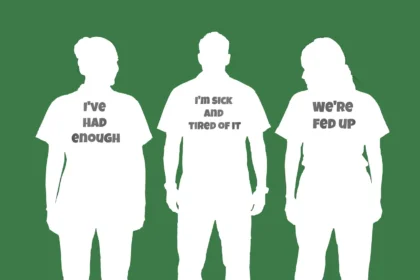Veronica and Charity Bowers, a young Christian missionary and her daughter, are killed when the Peruvian Air Force shoots down a small passenger plane in 2001. The plane had been mistaken for a drug smuggling plane and was shot down as part of a joint anti-drug agreement between the CIA and the Colombian and Peruvian governments.
President Donald Trump has made the Bowers’s deaths newly and urgently relevant since he began ordering the U.S. military to strike down alleged drug smuggling boats in the Caribbean and eastern Pacific Ocean in September 2025. By early November, the U.S. had launched a total of 17 strikes, killing at least 70 people, and those figures seem to grow almost by the day. The attacks are illegal under both U.S. and international law. The administration also provided no documentation of the alleged drug trafficking.
The attack on the Bowers family pierced the veil that obscures drug war foreign policy because of their nationality, skin color, and relatability. More than 20 years ago, House Oversight Committee hearing members Jan Schakowsky and Elijah Cummings demanded accountability after U.S. drug interdiction forces killed the Bowers. They demanded to know how such a mistake could happen, and how we could prevent the loss of innocent life going forward.
“The kind of action we saw in Peru … amounts to an extrajudicial killing,” said Schakowsky at the time. Cummings added, “The Peruvian shootdown policy would never be permitted as a domestic United States policy precisely because it goes against one of our most sacred, due process principles — namely, that all persons are presumed innocent until proven guilty.”
Now, a new administration openly celebrates summary execution of alleged drug smugglers without a hint of due process, and is now threatening to topple another government to prevent the U.S. from sating its appetite for illicit drugs.
The story of Veronica and Charity Bowers is a stark reminder of how aggressive drug policy is wasteful and futile, how we never seem to learn from past failures, and how the generations-long effort to stop people from getting high also — and necessarily — treats human lives as expendable.
IT’S EVEN WORSE THAN WE THOUGHT.
What we’re seeing right now from Donald Trump is a full-on authoritarian takeover of the U.S. government.
This is not hyperbole.
Court orders are being ignored. MAGA loyalists have been put in charge of the military and federal law enforcement agencies. The Department of Government Efficiency has stripped Congress of its power of the purse. News outlets that challenge Trump have been banished or put under investigation.
Yet far too many are still covering Trump’s assault on democracy like politics as usual, with flattering headlines describing Trump as “unconventional,” “testing the boundaries,” and “aggressively flexing power.”
The Intercept has long covered authoritarian governments, billionaire oligarchs, and backsliding democracies around the world. We understand the challenge we face in Trump and the vital importance of press freedom in defending democracy.







